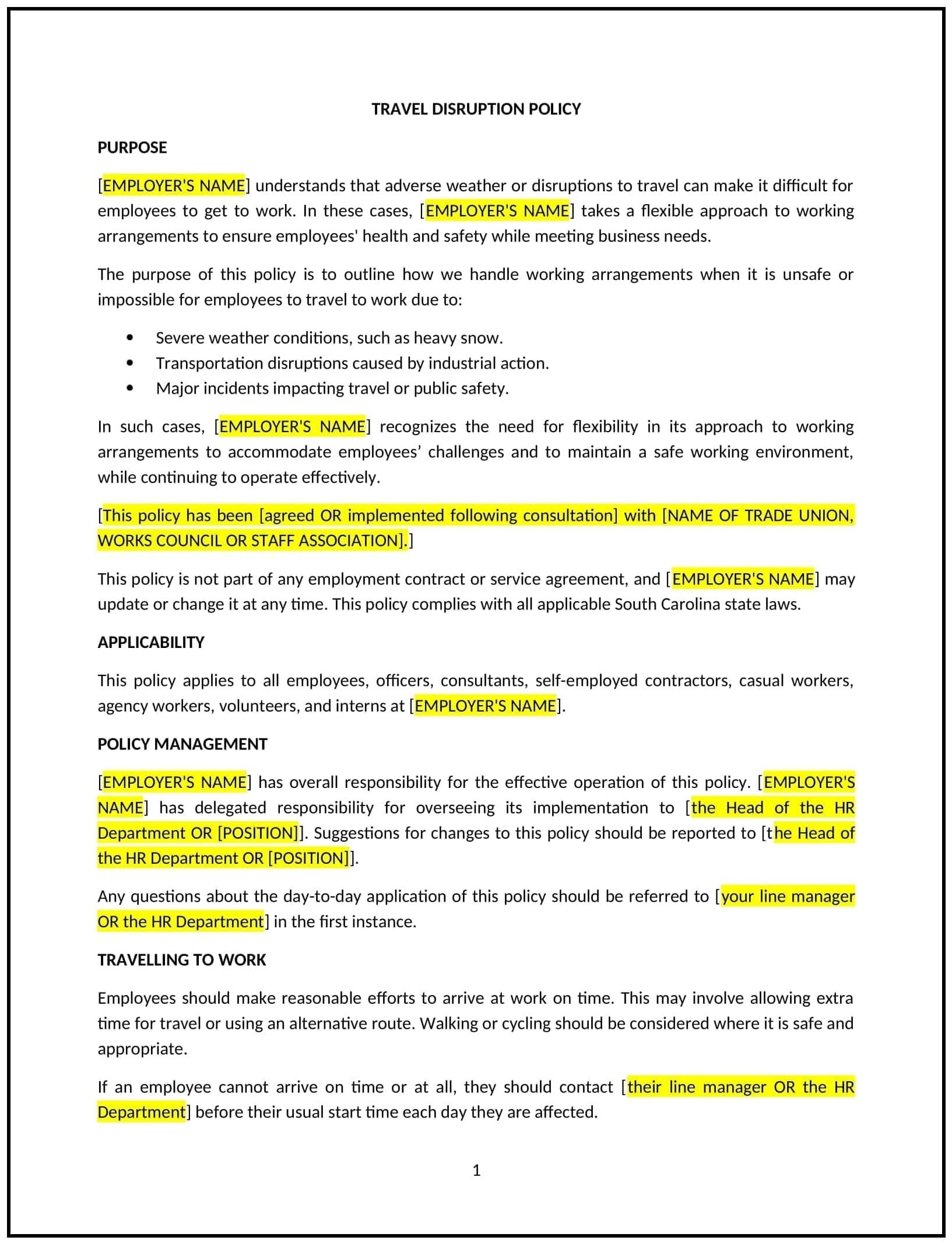Travel disruption policy (South Carolina): Free template
Got contracts to review? While you're here for policies, let Cobrief make contract review effortless—start your free review now.

Customize this template for free
Travel disruption policy (South Carolina)
This travel disruption policy is designed to help South Carolina businesses establish guidelines for managing unexpected disruptions during business travel, such as flight cancellations, natural disasters, or medical emergencies. It outlines procedures for addressing disruptions, ensuring employee safety, and minimizing the impact on business operations.
By adopting this policy, businesses can support employees during travel disruptions, reduce risks, and align with general best practices for travel management.
How to use this travel disruption policy (South Carolina)
- Define travel disruptions: Explain what constitutes a travel disruption, such as flight cancellations, severe weather, or medical emergencies.
- Establish response procedures: Provide steps for employees to follow during a disruption, such as contacting the business, rebooking travel, or seeking medical assistance.
- Address safety measures: Outline safety protocols, such as emergency contacts, travel insurance, and access to local resources.
- Set communication guidelines: Specify how employees should communicate with the business during a disruption, including regular updates and status reports.
- Train employees: Educate staff on their responsibilities for managing travel disruptions and adhering to the policy.
- Review and update: Assess the policy annually to ensure it aligns with evolving business needs and travel standards.
Benefits of using this travel disruption policy (South Carolina)
This policy offers several advantages for South Carolina businesses:
- Supports employees: Ensures employees have the resources and guidance needed to handle travel disruptions effectively.
- Reduces risks: Minimizes the potential for safety incidents, financial losses, or operational delays during disruptions.
- Aligns with best practices: Provides a structured approach to managing travel disruptions.
- Enhances efficiency: Streamlines the process of addressing disruptions and rescheduling travel.
- Builds trust: Demonstrates a commitment to employee safety and well-being during business travel.
Tips for using this travel disruption policy (South Carolina)
- Communicate the policy: Share the policy with employees and include it in the employee handbook.
- Provide training: Educate staff on their responsibilities for managing travel disruptions and adhering to the policy.
- Monitor adherence: Regularly review travel arrangements and disruption responses to ensure compliance with the policy.
- Address issues promptly: Take corrective action if travel disruptions are mishandled or if employees face unnecessary risks.
- Update regularly: Assess the policy annually to ensure it aligns with evolving business needs and travel standards.